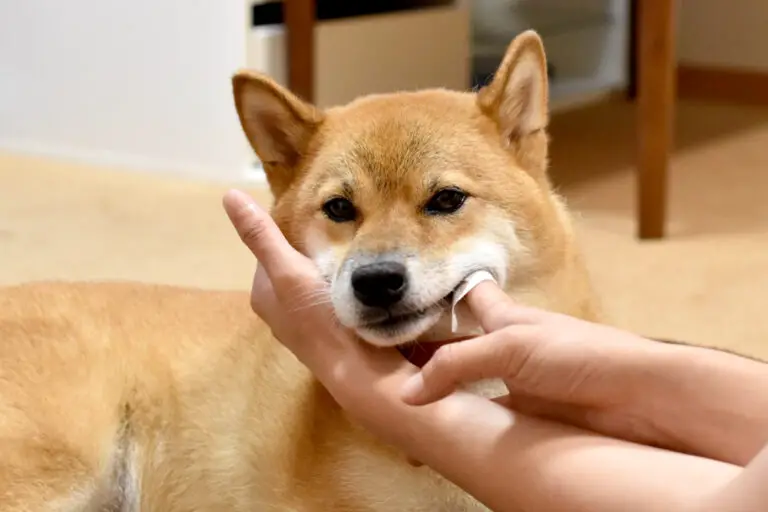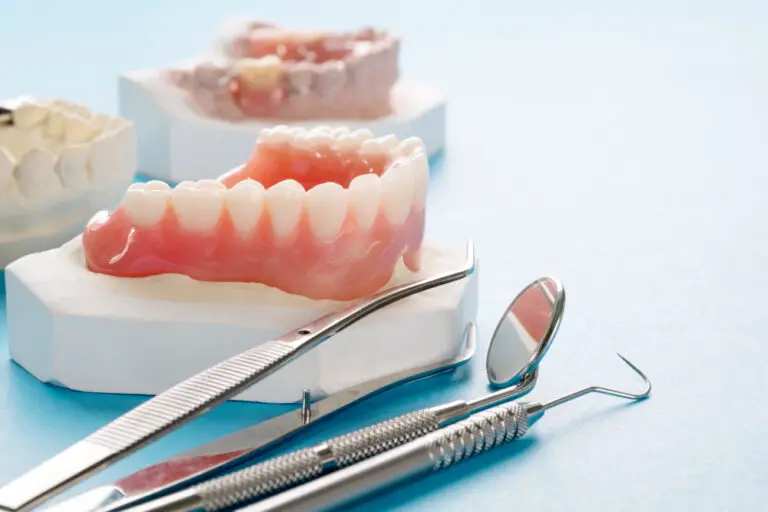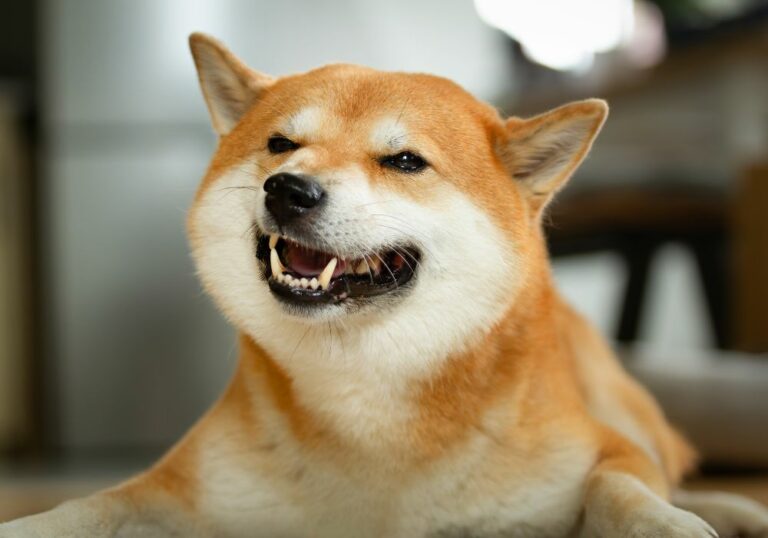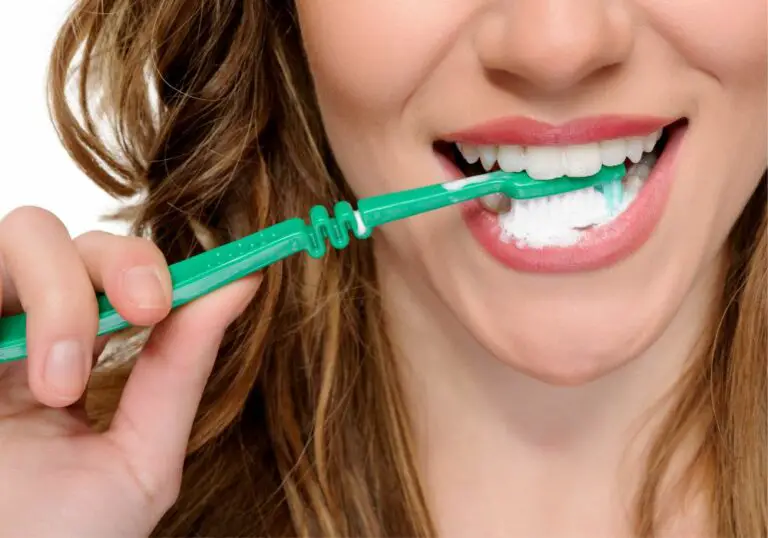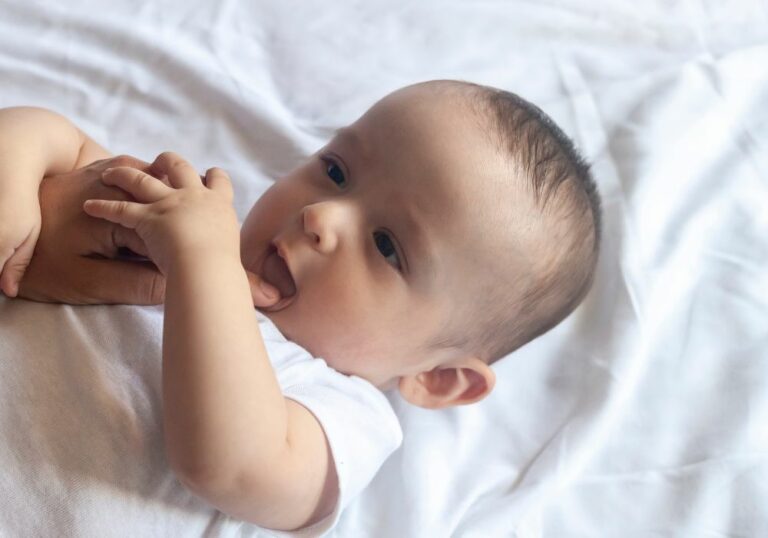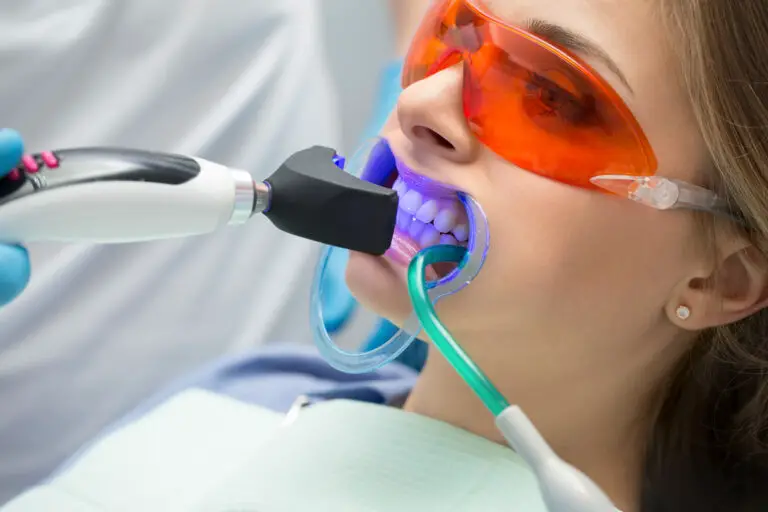Are you a new puppy owner wondering about the best way to care for your furry friend’s teeth? You may be wondering if you can use a regular toothbrush to brush your puppy’s teeth. The answer is yes, but with some important caveats.
Firstly, it’s important to choose the right toothbrush. A regular adult toothbrush may be too large and have bristles that are too hard for your puppy’s small mouth and delicate teeth. Instead, opt for a toothbrush specifically designed for puppies or small dogs. These will have softer bristles and a smaller head, making it easier to navigate your puppy’s mouth. Additionally, consider using toothpaste specifically formulated for dogs, as human toothpaste can be harmful to them.
Understanding Puppy Dental Care

Taking care of your puppy’s teeth is an important part of their overall health. In this section, we will discuss the development of puppy teeth and the importance of dental hygiene.
Puppy Teeth Development
Puppies are born without teeth, but their baby teeth, also known as deciduous teeth, will start to come in at around three to four weeks of age. By the time they are eight weeks old, most puppies will have a full set of baby teeth, which includes 28 teeth. These baby teeth will eventually fall out, and adult teeth will take their place.
Around four months of age, puppies will start to lose their baby teeth, and adult teeth will begin to come in. By the time they are six months old, most puppies will have a full set of adult teeth, which includes 42 teeth.
Importance of Dental Hygiene
Just like humans, dogs need regular dental care to maintain good oral health. Poor dental hygiene can lead to dental problems such as gum disease, tooth decay, and bad breath. It can also lead to more serious health problems such as heart disease and kidney disease.
To keep your puppy’s teeth healthy, it is important to establish a dental care routine early on. This routine should include regular brushing, dental chews, and visits to the veterinarian for dental check-ups.
When it comes to brushing your puppy’s teeth, it is important to use a toothbrush and toothpaste that are specifically designed for dogs. Never use human toothpaste, as it can be harmful to your puppy.
In addition to brushing, dental chews can also be helpful in maintaining your puppy’s dental health. Look for chews that are designed to reduce plaque and tartar buildup.
Regular visits to the veterinarian for dental check-ups are also important. Your veterinarian can check for signs of dental problems and provide treatment if necessary.
By establishing a dental care routine early on, you can help ensure that your puppy maintains good oral health throughout their life.
Can I Brush My Puppy’s Teeth with a Regular Toothbrush?
As a new puppy owner, you may be wondering if you can use a regular toothbrush to brush your puppy’s teeth. The answer is yes, you can use a regular toothbrush, but there are a few things you should keep in mind.
First, make sure you are using a soft-bristled toothbrush. A toothbrush with hard bristles can be too harsh on your puppy’s teeth and gums, causing discomfort or even damage. You can find toothbrushes specifically designed for puppies at pet stores or online, but a regular soft-bristled toothbrush will work just fine.
Next, choose a toothpaste that is safe for puppies. Human toothpaste can be harmful to dogs, so make sure you are using a toothpaste that is specifically formulated for dogs. These toothpastes are usually flavored to make them more appealing to dogs, and they don’t contain any harmful ingredients.
When brushing your puppy’s teeth, use a small amount of toothpaste and gently brush in a circular motion. Focus on the outer surfaces of the teeth, as this is where most of the plaque and tartar buildup occurs. Be sure to give your puppy plenty of praise and treats during and after the brushing session to make it a positive experience.
It’s important to establish a regular teeth brushing routine with your puppy to prevent dental problems in the future. Aim to brush your puppy’s teeth at least once a week, but ideally, you should brush them every day. Regular brushing can help prevent gum disease, tooth decay, and bad breath, so it’s worth the effort to get your puppy used to it early on.
Choosing the Right Toothbrush for Your Puppy
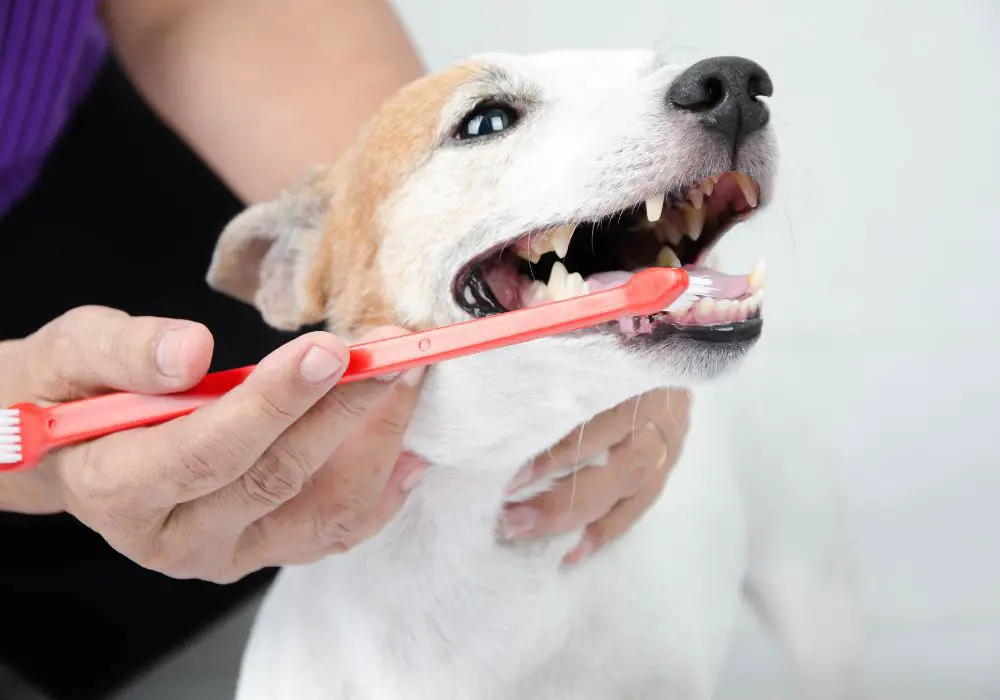
When it comes to brushing your puppy’s teeth, choosing the right toothbrush is essential. In this section, we will discuss the different types of toothbrushes available and help you choose the best one for your furry friend.
Puppy-Specific Toothbrushes
Puppy-specific toothbrushes are designed to fit the unique shape and size of a puppy’s mouth. These toothbrushes have smaller heads and softer bristles, making them gentle on your puppy’s teeth and gums. Additionally, puppy-specific toothbrushes often come in fun shapes and colors, which can make brushing more enjoyable for your furry friend.
Here are some of the benefits of using a puppy-specific toothbrush:
- Smaller head and softer bristles make it easier to brush your puppy’s teeth without causing discomfort.
- Fun shapes and colors can help make brushing more enjoyable for your puppy.
- Designed specifically for puppies, so you can be sure you’re using a toothbrush that’s safe and effective.
Human Toothbrushes vs Puppy Toothbrushes
While you can technically use a human toothbrush to brush your puppy’s teeth, it’s not recommended. Human toothbrushes are designed for human teeth and can be too harsh on your puppy’s delicate mouth. Additionally, human toothbrushes have larger heads and harder bristles, which can make it difficult to reach all of your puppy’s teeth.
Here are some of the reasons why you should use a puppy toothbrush instead of a human toothbrush:
- Puppy toothbrushes have smaller heads and softer bristles, making them gentler on your puppy’s teeth and gums.
- Puppy toothbrushes are designed specifically for puppies, so you can be sure you’re using a toothbrush that’s safe and effective.
- Human toothbrushes can be too harsh on your puppy’s delicate mouth and may cause discomfort.
In conclusion, it’s important to choose the right toothbrush for your puppy to ensure that brushing is a positive experience. Puppy-specific toothbrushes are designed to be gentle on your puppy’s teeth and gums, while human toothbrushes can be too harsh. By choosing the right toothbrush, you can help keep your puppy’s teeth clean and healthy for years to come.
How to Brush Your Puppy’s Teeth
Brushing your puppy’s teeth is an important part of their overall health and wellbeing. It can help prevent dental issues such as gum disease, tooth decay, and bad breath. Here is a step-by-step guide to brushing your puppy’s teeth:
Step-by-Step Guide
- Choose the right toothbrush: Use a toothbrush specifically designed for dogs. A regular toothbrush may be too harsh on your puppy’s gums and teeth. You can find dog toothbrushes at your local pet store or online.
- Choose the right toothpaste: Use toothpaste specifically designed for dogs. Human toothpaste contains ingredients that can be harmful to dogs. Dog toothpaste comes in a variety of flavors such as chicken, beef, and peanut butter, making it more appealing to your puppy.
- Introduce your puppy to the toothbrush and toothpaste: Let your puppy sniff and taste the toothbrush and toothpaste. This will help them get used to the taste and texture.
- Lift your puppy’s lip: Gently lift your puppy’s lip to expose their teeth and gums.
- Brush your puppy’s teeth: Using a circular motion, brush your puppy’s teeth and gums. Start with the front teeth and work your way to the back. Be gentle and take your time.
- Reward your puppy: After brushing your puppy’s teeth, reward them with a treat or praise. This will help make teeth brushing a positive experience for your puppy.
Tips for Making Teeth Brushing Easier
- Start early: Start brushing your puppy’s teeth as early as possible. This will help them get used to the process and make it easier as they get older.
- Be consistent: Brush your puppy’s teeth at least once a day. Consistency is key to maintaining good dental health.
- Use dental chews and toys: Dental chews and toys can help keep your puppy’s teeth clean between brushings.
- Make it fun: Turn teeth brushing into a game or bonding experience with your puppy. This will make it more enjoyable for both you and your puppy.
By following these steps and tips, you can help keep your puppy’s teeth and gums healthy and prevent dental issues in the future.
Maintaining Your Puppy’s Oral Health
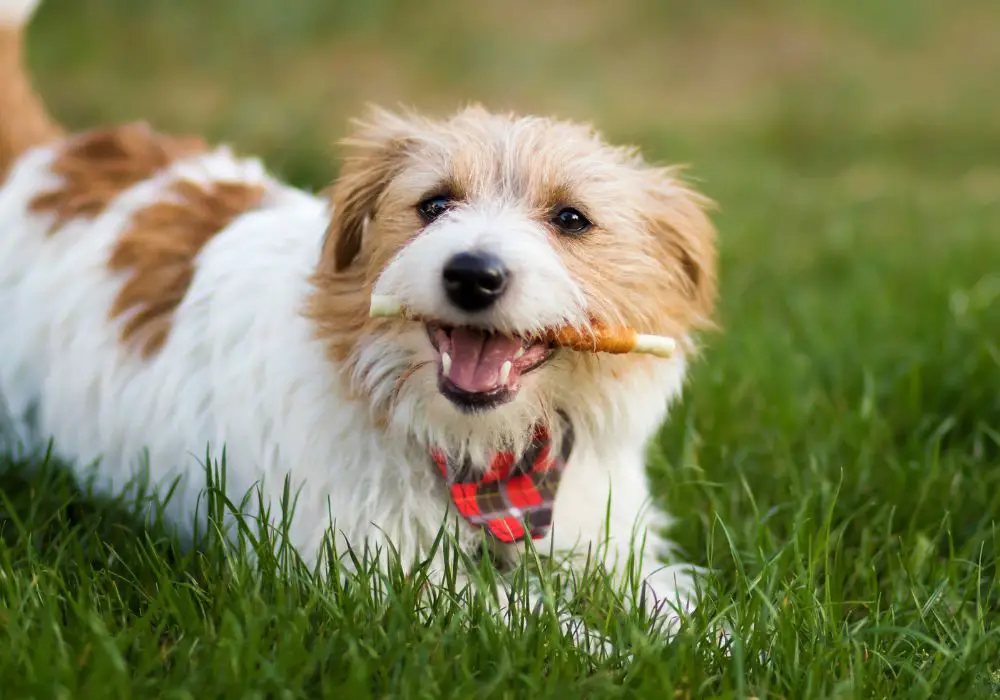
Taking care of your puppy’s teeth is an important part of their overall health. Here are some tips to help you maintain your puppy’s oral health.
Regular Vet Check-Ups
Regular check-ups with your veterinarian can help ensure that your puppy’s teeth and gums are healthy. Your vet can also provide advice on how to care for your puppy’s teeth at home and recommend any necessary dental treatments.
Dental Treats and Toys
Offering your puppy dental treats and toys can help keep their teeth clean and healthy. Look for treats that are specifically designed to promote dental health, such as those that have a nubby surface to scrub the teeth. Avoid giving your puppy hard chew objects that may break their teeth, such as cow bones, pig hooves, or antlers.
Professional Cleaning
Professional dental cleaning by a veterinarian is recommended for puppies as they grow older. This involves a thorough cleaning of your puppy’s teeth and gums, which can help prevent dental problems in the future. Your vet can recommend a cleaning schedule based on your puppy’s individual needs.
By following these tips, you can help ensure that your puppy’s teeth and gums stay healthy. Remember to always consult with your veterinarian for advice on your puppy’s individual dental needs.
Frequently Asked Questions
What is the best toothbrush for a puppy?
The best toothbrush for a puppy is a soft-bristled toothbrush that is specifically designed for dogs. You can find these toothbrushes at your local pet store or online. They are usually smaller than regular toothbrushes and have bristles that are gentle on your puppy’s teeth and gums.
How often should I brush my puppy’s teeth?
Ideally, you should brush your puppy’s teeth every day. This will help prevent the buildup of plaque and tartar, which can lead to dental problems like gum disease and tooth decay. However, if you’re not able to brush your puppy’s teeth every day, try to do it at least a few times a week.
Can I use coconut oil to brush my puppy’s teeth?
Yes, you can use coconut oil to brush your puppy’s teeth. Coconut oil has antibacterial properties that can help prevent the buildup of plaque and tartar on your puppy’s teeth. Simply dip your puppy’s toothbrush in melted coconut oil and brush their teeth as you normally would.
What are some alternatives to toothpaste for brushing my puppy’s teeth?
If you don’t have any toothpaste for your puppy, there are some alternatives you can use. One option is to use a mixture of baking soda and water. Another option is to use a mixture of hydrogen peroxide and water. However, it’s important to note that these alternatives should only be used in moderation and under the guidance of a veterinarian.
Do I need a special toothbrush for my puppy or can I use a regular one?
While you can technically use a regular toothbrush to brush your puppy’s teeth, it’s not recommended. Regular toothbrushes are designed for human teeth and can be too harsh on your puppy’s delicate gums. It’s best to use a toothbrush that is specifically designed for dogs.
How can I get my puppy to let me brush their teeth?
Getting your puppy to let you brush their teeth can be a challenge, but there are a few things you can try. First, start by getting your puppy used to having their mouth touched. You can do this by gently rubbing their gums with your finger. Once they’re comfortable with this, you can start introducing the toothbrush and toothpaste. Be patient and gentle, and reward your puppy with treats and praise for good behavior.

